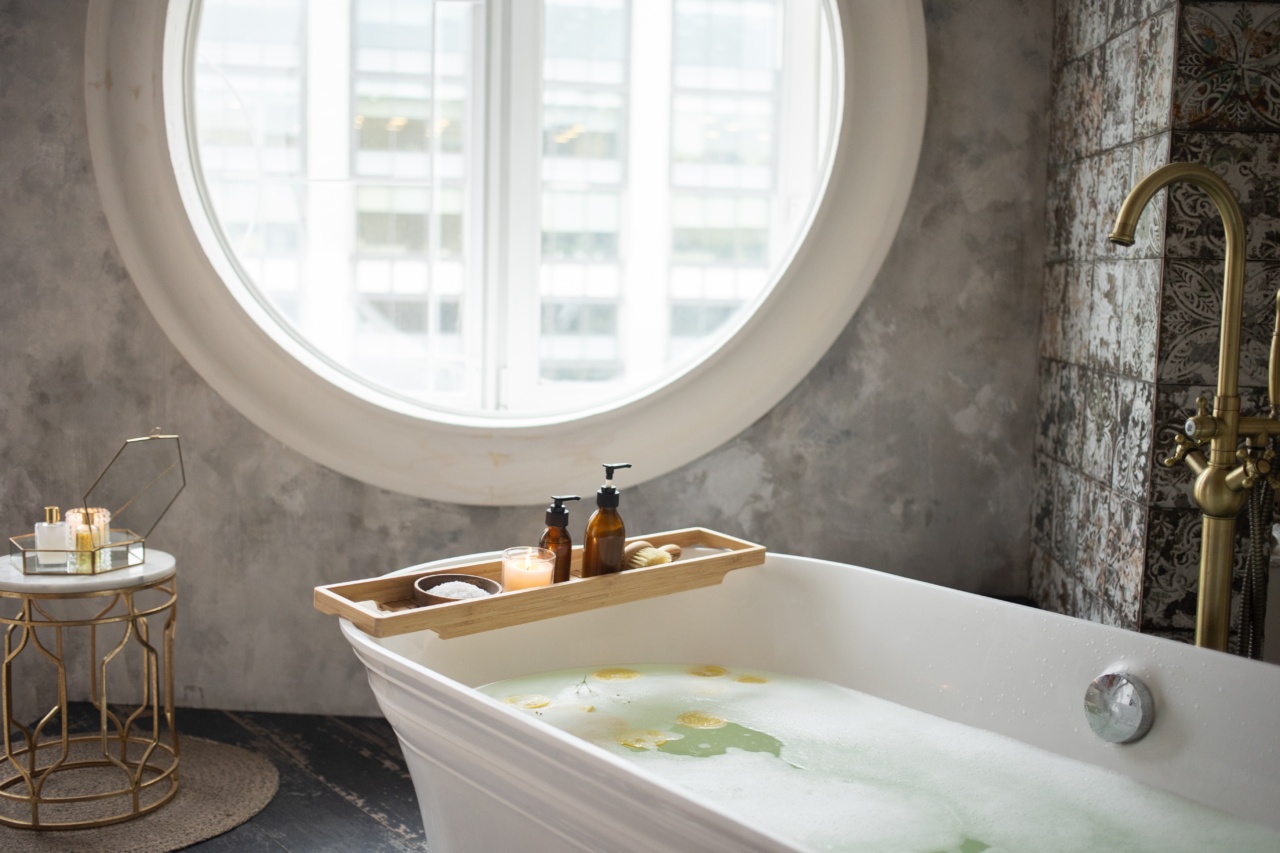Bathing is a routine activity that most people engage in on a daily basis. It not only helps us maintain personal hygiene but also gives us a sense of freshness. However, there is a growing debate on whether daily bathing is necessary for good health.
Some argue that frequent bathing may strip our skin of natural oils and disrupt the skin’s microbiome, while others believe it is essential for cleanliness and overall well-being. In this article, we will explore both sides of the argument and examine the evidence to determine whether daily bathing is indeed necessary for good health.
The Importance of Personal Hygiene
Personal hygiene plays a crucial role in maintaining overall health and well-being. Regular bathing helps to remove sweat, dirt, bacteria, and dead skin cells from our bodies.
It also helps to prevent various skin infections, such as acne, rashes, and fungal infections, by keeping our skin clean and free from impurities.
Bathing with soap or body wash also helps to eliminate odors and keeps us smelling fresh. It is especially important in hot and humid climates where sweat production is higher.
Proper hygiene habits, including regular bathing, contribute to a positive self-image and boost our confidence.
The Benefits of Daily Bathing
Advocates of daily bathing believe that it offers several benefits for our overall health and well-being. These include:.
1. Cleansing the Skin
Daily bathing with soap and water helps to remove dirt, sweat, and pollutants that accumulate on our skin throughout the day. This cleansing process helps to unclog pores, preventing acne and other skin problems.
2. Reducing the Risk of Infections
Bathing helps to remove harmful bacteria, viruses, and fungi from our bodies, reducing the risk of infections.
It is particularly important to wash hands thoroughly with soap and water, as this is one of the most effective ways to prevent the spread of communicable diseases.
3. Promoting Relaxation and Mental Well-being
Bathing is not only a physical act but also a sensory experience that can promote relaxation and mental well-being. Taking a warm bath soothes tired muscles, relieves stress, and provides a space for relaxation and self-care.
The Potential Downsides of Daily Bathing
While daily bathing has its benefits, some argue that it could have potential downsides. These include:.
1. Stripping Natural Oils
Frequent use of soap and hot water during bathing can strip the natural oils from our skin. These oils act as a protective barrier and help to maintain the skin’s moisture balance.
When these oils are removed, the skin may become dry, itchy, and more prone to irritation.
2. Disrupting the Skin Microbiome
Our skin is home to a diverse community of microorganisms known as the skin microbiome. These microorganisms play a crucial role in protecting our skin from pathogens and maintaining its health.
Daily bathing, especially with harsh soaps, can disrupt this delicate ecosystem, potentially leading to imbalances and skin issues.
3. Causing Excessive Dryness
Frequent bathing, particularly with hot water and harsh soaps, can lead to excessive dryness of the skin. Dry skin is more susceptible to cracking, itching, and other discomforts.
This can be especially problematic for individuals with pre-existing skin conditions like eczema or psoriasis.
The Middle Ground: Finding a Balance
While there are arguments for both daily bathing and less frequent bathing, finding a balance that works for each individual is essential.
Factors such as climate, personal hygiene habits, and skin type should be considered to determine the bathing frequency that suits our needs.
For individuals with oily or acne-prone skin, daily bathing may be beneficial in managing excess oil production and preventing breakouts.
On the other hand, individuals with dry or sensitive skin may benefit from less frequent bathing, such as every other day or a few times a week, to preserve the skin’s natural moisture.
Regardless of the bathing frequency, it is important to use gentle, pH-balanced soaps or cleansers that do not strip the skin of its natural oils.
Moisturizing after bathing also helps to replenish the skin’s moisture barrier and maintain hydration.
Other Considerations for Good Health
Bathing is undeniably an essential aspect of personal hygiene, but it is not the only factor that determines overall good health. Here are other important considerations:.
1. Proper Handwashing
Proper handwashing is crucial for preventing the spread of diseases.
It is necessary to wash hands with soap and water for at least 20 seconds, especially before eating, after using the restroom, or when in contact with potentially contaminated surfaces.
2. Dental Hygiene
Oral hygiene is essential for maintaining good dental health. Brushing teeth at least twice a day and flossing regularly helps to remove plaque and prevent dental issues such as cavities and gum diseases.
3. Balanced Diet and Exercise
Eating a balanced diet rich in fruits, vegetables, whole grains, and proteins is crucial for overall health. Regular exercise also plays a significant role in maintaining cardiovascular fitness, muscle strength, and mental well-being.
Conclusion
In conclusion, while daily bathing has its benefits in terms of cleanliness and personal hygiene, it may not be necessary or suitable for everyone.
Factors such as skin type, climate, and personal preference should be considered when determining the appropriate bathing frequency. Striking a balance between maintaining cleanliness and preserving the skin’s natural oils is essential for good health.
Ultimately, personal hygiene extends beyond daily bathing and includes practices such as proper handwashing, dental hygiene, a balanced diet, and regular exercise to promote overall well-being.






























